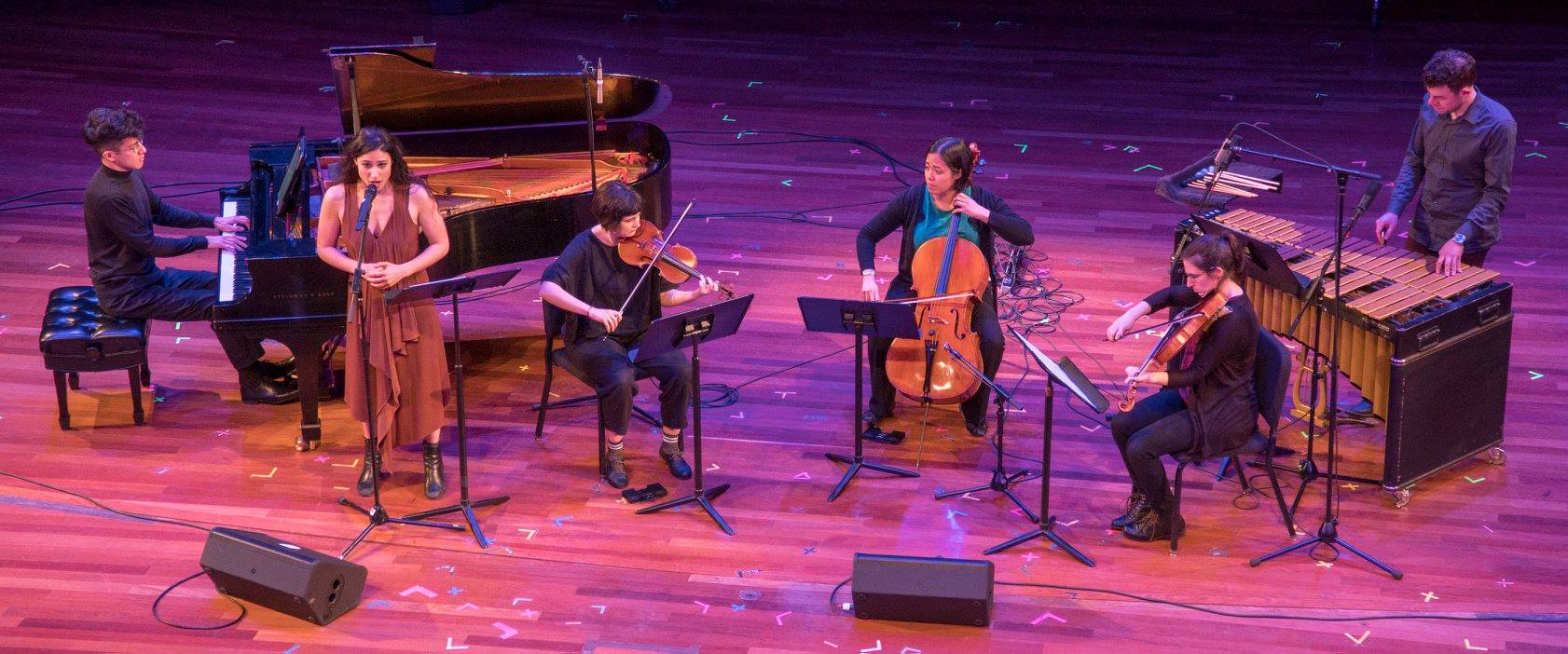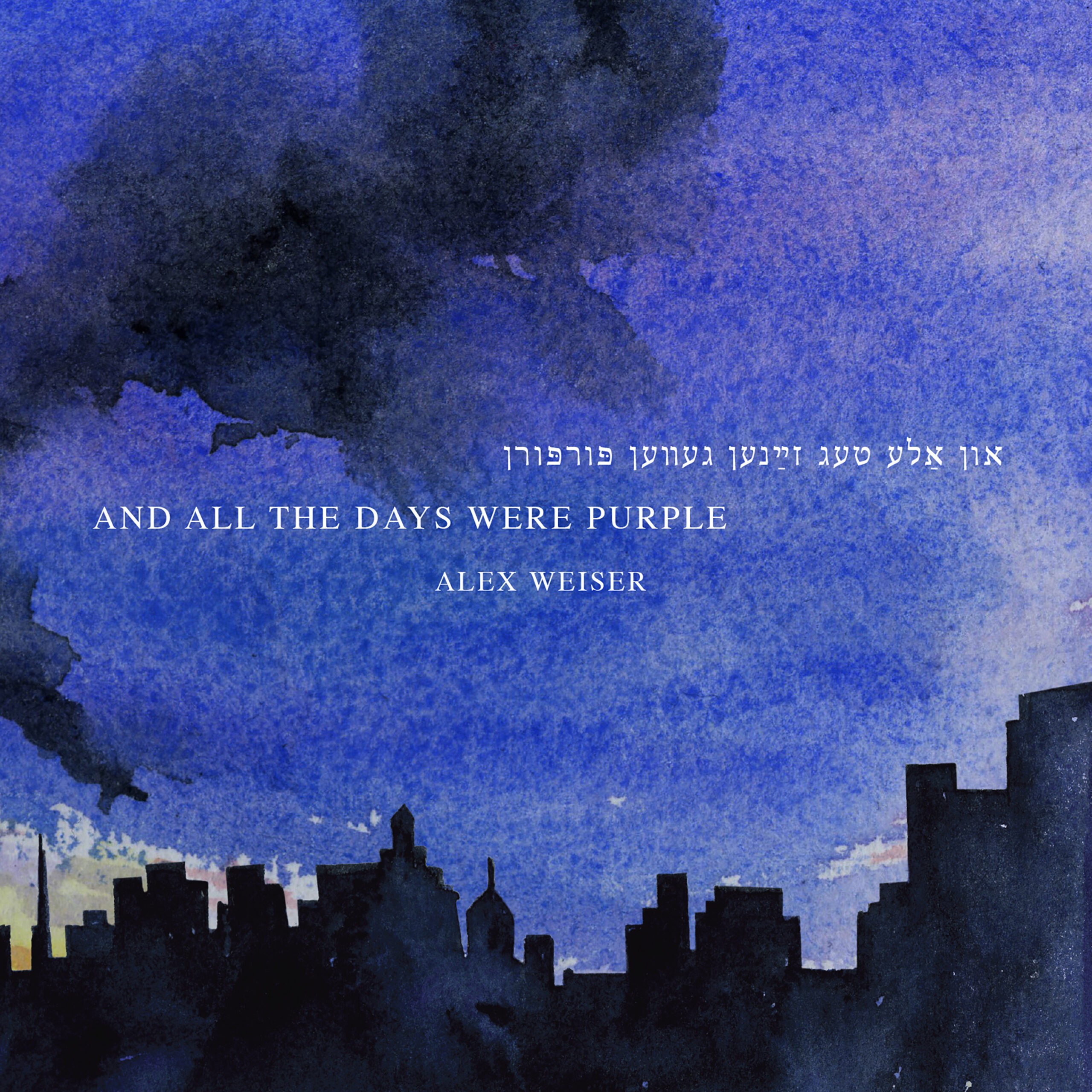In this essay, composer Alex Weiser recounts the experience of creating his song cycle, and all the days were purple, which was named a 2020 Pulitzer Prize Finalist in Music. With assistance from Asylum Art’s Small Grants Program, Weiser created an orchestral arrangement for a premiere at the POLIN Museum in Warsaw. Originally scheduled for October 2020, the premiere has been postponed due to COVID-19 closures.
In August 2016, I got an email from Roulette (a performing arts and new music venue located in Brooklyn, NYC), with the all-too-rare invitation to create a substantial new work with no strings attached. That is to say, unlike the average commission, the new work didn’t have to be for any particular instrumentation or a particular length. It didn’t have to fit any thematic program, be made to mark a certain occasion, or be written to pair with other works on a curated evening. This generous opportunity gave me the chance to contemplate what I wanted to do as an artist, what I wanted to say, what I wanted to work through.
Six months earlier I had started running the public programs at the YIVO Institute for Jewish Research, learning Yiddish, and becoming immersed in the world of Jewish history. I discovered the incredibly rich world of secular Yiddish poetry and I was struck by poems with passionate, thoughtful exploration of many of the same ideas that I was interested in exploring in my music: the transience of life; desire and yearning; the ability of art to be transcendent and to do the seemingly impossible. In this poetry I found all of this and more, rooted in the language and historic experience of my own heritage. I decided to use the commission from Roulette to create a work at the intersection of these ideas.

The result was my song cycle, and all the days were purple, a ~30 minute, 8-movement work for singer Eliza Bagg with an all-star cast of some of the musicians I was most excited to work with: Lee Dionne on piano, New Morse Code duo Hannah Collins and Michael Compitello on cello and percussion, and duo andPlay Maya Bennardo and Hannah Levinson on violin and viola. In addition to premiering and all the days were purple at Roulette the following May, we recorded the song cycle alongside my Three Epitaphs – an earlier work reflecting on many of the same ideas with poetry by William Carlos Williams, Emily Dickinson, and the ancient Greek “Seikilos epitaph” text in my own, loose, English translation. The result was my first album, released by Cantaloupe Music in April 2019.

Later in 2019 I received an invitation from the POLIN Museum of the History of Polish Jews to bring and all the days were purple to Warsaw. In addition to the exciting opportunity to bring this work to a large new audience in the context of a museum doing important work to tell the history of Jews in Eastern Europe, the invitation from POLIN opened up the possibility of performing the work with a full orchestra. With support from Asylum Arts’s Small Grants program, I worked for months creating an orchestral arrangement of the song cycle: a detailed labor to reimagine the soundworld of the piece on a much broader palette. What could this piece sound like with dozens of string players instead of three? In what ways could woodwinds and brass add more color and dimension to the songs? How might the dynamic range of the small ensemble translate with the added weight and range of the full orchestra?
Planned for October 2020, due to the COVID-19 pandemic the premiere had to be postponed. Various subsequent plans have been scuttled for the time being. We look forward to presenting the world premiere of the orchestral version of this work as soon as it is safe to do so.
Listen to and all the days were purple —


